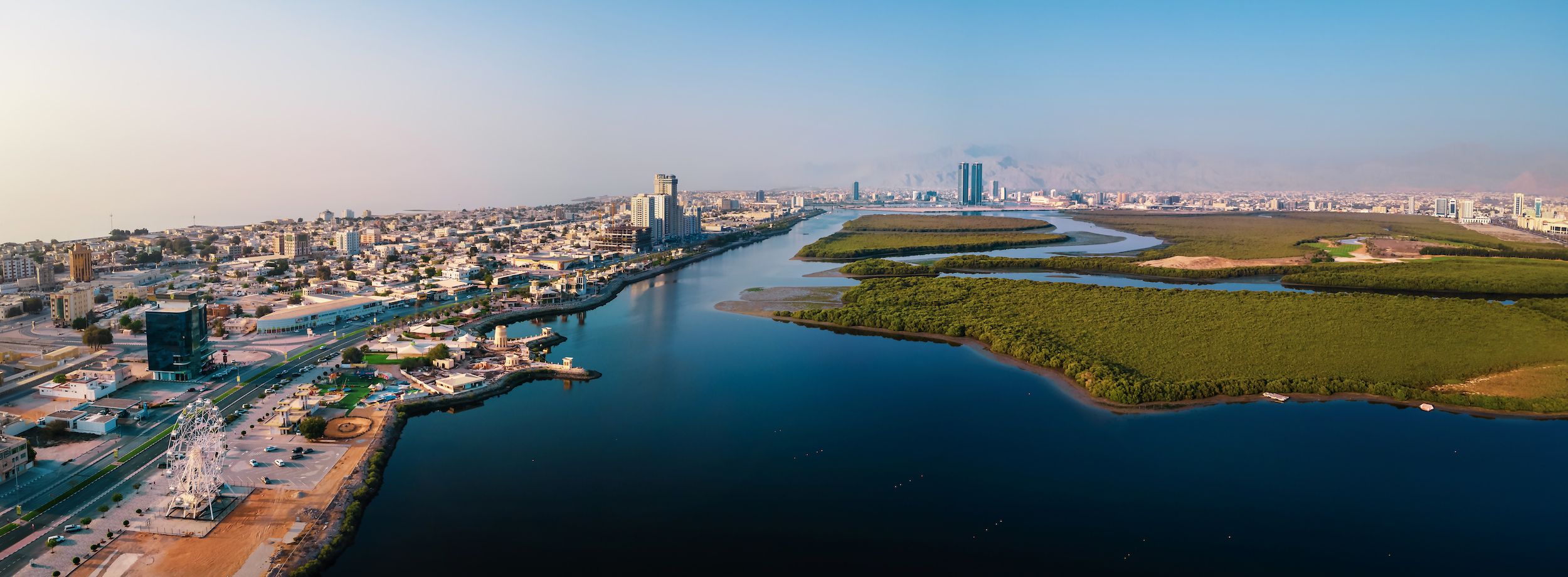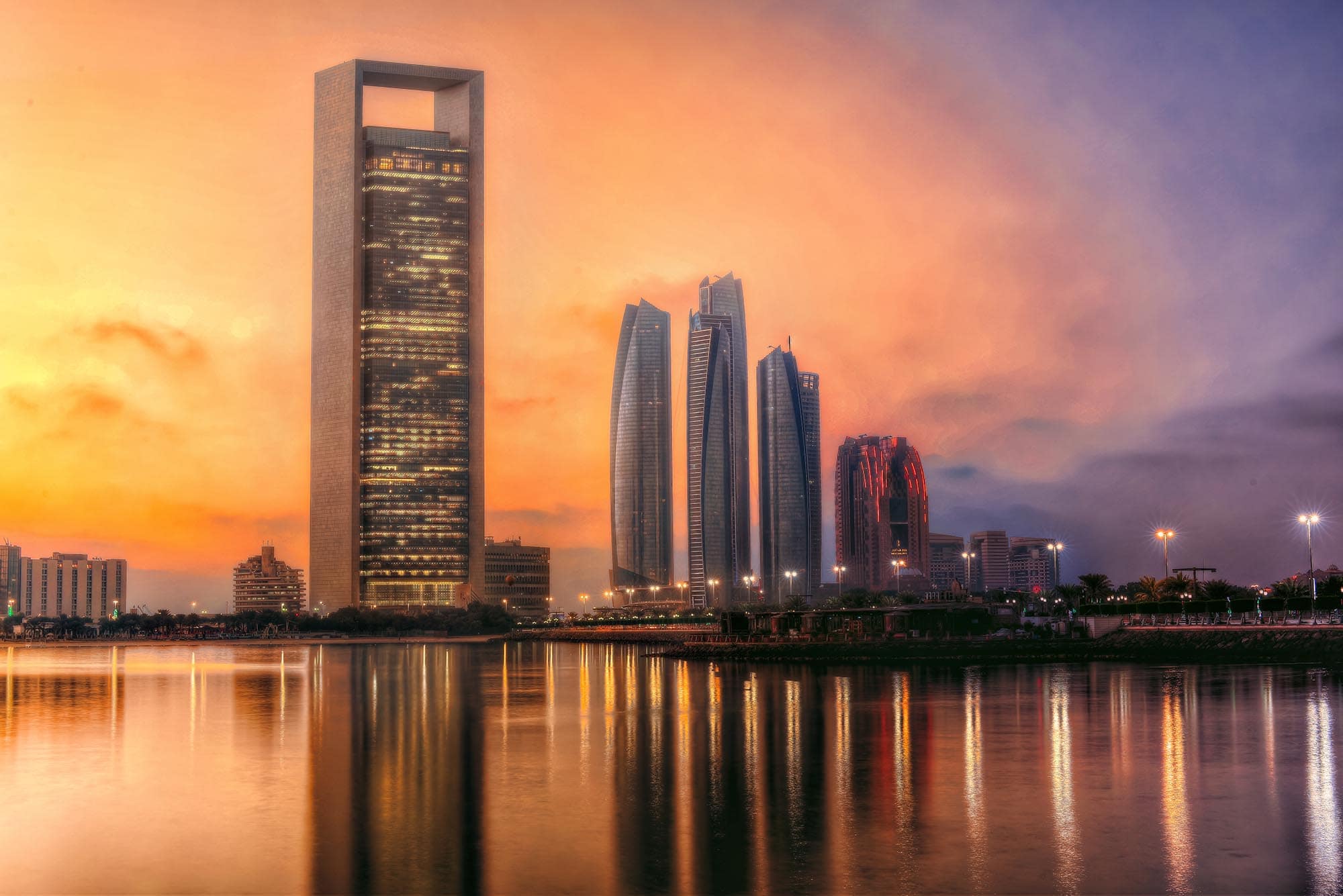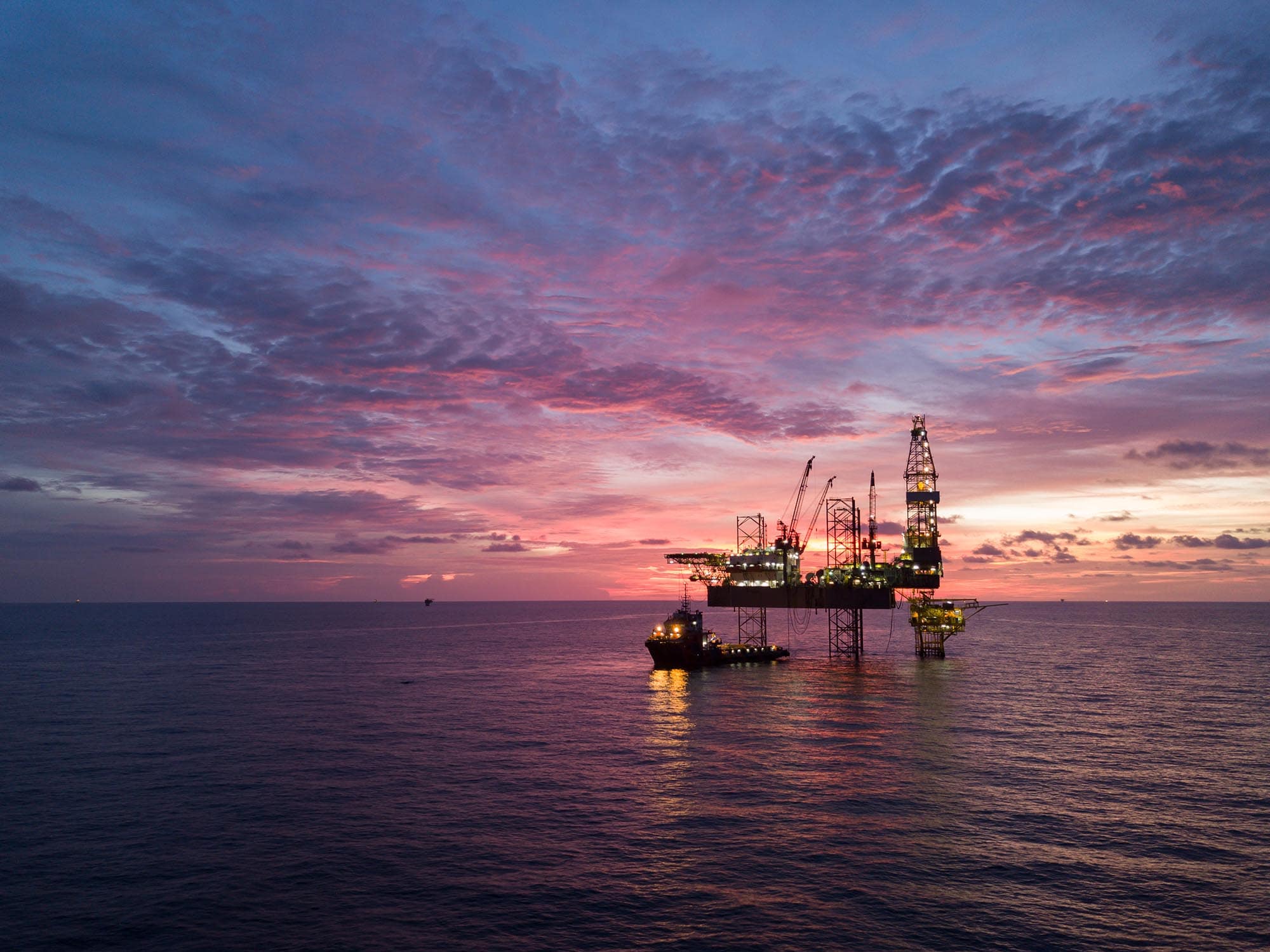Emirates Specialized Contracting and Oilfield Services L.L.C (ESCO) is proud to announce our collaboration with ADNOC Group's ADNOC Logistics and Services and ADNOC Onshore during the UAE's Year of Sustainability at the 2023 Roadshow. This partnership embodies our shared commitment to driving innovation, collaboration, and efficiency in the energy sector, ensuring a sustainable future for the UAE.
At ESCO, we have established ourselves as a trusted leader in providing specialized support services with a focus on safety and compliance. Our goal is to help clients maximize the value of their assets while minimizing the associated costs.
A critical aspect of our environmental services is the proper management of Naturally Occurring Radioactive Materials (NORM). Ensuring the safe handling, transportation, and disposal of NORM is essential to protecting both the environment and the health of those who work in the industry.
As part of our collaboration with ADNOC Logistics and Services and ADNOC Onshore, we will emphasize the following key areas:
- Enhancing operational efficiency: By utilizing advanced technology and innovative solutions, we aim to optimize asset performance and reduce downtime.
- Prioritizing safety and compliance: Our teams will continue to uphold strict regulatory standards and prioritize safety, protecting our workforce and minimizing environmental impact.
- Implementing sustainable practices: We are dedicated to reducing our carbon footprint and incorporating environmentally-friendly practices throughout our operations.
- Encouraging collaboration and innovation: The 2023 Roadshow will serve as a platform for industry stakeholders to exchange ideas, knowledge, and best practices, fostering a culture of innovation and collaboration across the energy sector.
- Supporting local content development: As a UAE-based company, we are committed to promoting local talent and contributing to the growth and development of the UAE's economy.
Together with ADNOC Logistics and Services and ADNOC Onshore, ESCO is determined to promote sustainability in the oil and gas sector, playing our part in achieving the UAE's vision of a greener, more sustainable future for generations to come.
Naturally Occurring Radioactive Materials; These are materials containing radioactive elements that are found naturally in the environment, such as uranium, thorium, and potassium-40. NORM is present in varying concentrations in soil, rocks, water, air and even in some building materials and consumer products.
In the oil and gas industry, NORM can accumulate in production equipment, pipelines, and waste materials during the extraction and processing of fossil fuels. NORM-contaminated equipment and waste products can pose a health risk to workers and the environment if not managed properly. It is essential to ensure the safe handling, transportation, and disposal of NORM to minimize exposure and protect both human health and the environment.
TENORM stands for Technologically Enhanced Naturally Occurring Radioactive Material. It refers to naturally occurring radioactive materials (NORM) that have been concentrated or exposed to the environment as a result of human activities, such as mining, oil and gas production, or processing of raw materials.
In the oil and gas industry, for example, the extraction and production processes can lead to the concentration of NORM in equipment, pipelines, and waste materials. This concentrated NORM or TENORM, can pose a greater risk to human health and the environment than the original NORM.
Proper handling, transportation, storage, and disposal of TENORM are essential to minimize exposure and protect both workers and the environment. Regulatory guidelines and industry best practices have been established to manage TENORM safely and effectively.
Risk associated to NORM; NORM can cause several types of damage to human health and the environment when not managed properly. The potential hazards and damages include:
- Radiation exposure:
Exposure to NORM can result in increased radiation dose for workers and the general public. This may lead to an increased risk of developing radiation-induced health effects such as cancer or tissue damage.
- Contamination of equipment and facilities:
NORM can accumulate on surfaces, equipment, and facilities used in the oil and gas industry, posing a potential risk to workers who come into direct contact with these contaminated surfaces.
- Waste management challenges: NORM-contaminated waste materials generated during oil and gas production, such as scales, sludges, or drilling mud, can pose challenges in waste management, transportation, and disposal. If not handled properly, these materials can cause environmental contamination and create long-term health risks.
- Environmental contamination:
Improper management of NORM-contaminated waste can lead to contamination of soil, surface water, and groundwater. This can harm ecosystems, affect water quality, and pose risks to human health through the consumption of contaminated water or food sources.
- Economic impact: The need to manage and dispose of NORM-contaminated materials can increase operational costs for industries that generate these wastes. Additionally, the decontamination and disposal of contaminated equipment can be expensive and time-consuming.
Proper management of NORM, including the implementation of safety measures, monitoring programs, and adherence to regulatory guidelines, is crucial to minimize these potential damages and protect human health and the environment.
Hazardous Wastes; ESCO also manages other high-risk Hazardous oilfield wastes which are generated or introduced during the exploration, drilling, production and maintenance of oil and gas wells. These wastes can pose risks to human health and the environment if not managed and disposed of properly. Some common types of hazardous oilfield waste include:
- Drilling fluids and cuttings: Drilling fluids, or muds, are used to cool and lubricate the drill bit, maintain wellbore stability, and transport cuttings to the surface. Drilling cuttings are the rock fragments produced during drilling operations. Both drilling fluids and cuttings can contain toxic chemicals, heavy metals, and naturally occurring radioactive materials (NORM) that may pose hazards to the environment and human health.
- Produced water: Produced water is the water that is brought to the surface along with oil and gas during production. It can contain high levels of salts, heavy metals, hydrocarbons, and naturally occurring radioactive materials (NORM). Produced water is often the largest waste stream generated during oil and gas production.
- Tank bottoms and sludges: These are the heavy, viscous residues that accumulate at the bottom of storage tanks and separators. They can contain oil, grease, heavy metals, and other toxic substances.
- Spent solvents and chemicals: Various chemicals and solvents are used throughout the oil and gas production process, such as corrosion inhibitors, biocides, and emulsion breakers. Once these chemicals become spent or contaminated, they can be considered hazardous waste.
- Waste gases and emissions: Waste gases, such as methane and volatile organic compounds (VOCs), can be emitted during oil and gas production, transportation, and storage. These emissions can contribute to air pollution and climate change.
- Contaminated soil and equipment: Soil and equipment can become contaminated with oil, grease, chemicals, and NORM during drilling and production operations. Contaminated soil can pose risks to groundwater, surface water, and ecosystems, while contaminated equipment can be a hazard for workers.
Proper management, treatment, and disposal of hazardous oilfield wastes are essential to minimize environmental and human health risks. This often includes regulatory compliance, waste minimization, recycling and the use of approved disposal methods such as landfills, injection wells, or specialized treatment facilities.
Environmental Services; Handling NORM and other hazardous wastes responsibly is crucial in supporting sustainability for several reasons:
- Protection of human health: Proper management of hazardous wastes, including NORM, helps to minimize potential exposure risks for workers and the general public. Reducing exposure to hazardous substances can lower the incidence of acute and chronic health effects, such as respiratory issues, skin irritations, or cancer.
- Preservation of ecosystems: Responsible handling of hazardous wastes prevents the release of toxic substances into the environment, thus safeguarding ecosystems and preserving biodiversity. This is essential for maintaining the balance of natural systems and ensuring the survival of plant and animal species.
- Prevention of environmental contamination: Proper disposal and treatment of hazardous wastes help to prevent contamination of soil, surface water, and groundwater. This contributes to maintaining water quality and reducing the spread of pollutants that can harm both human health and the environment.
- Resource conservation: Sustainable waste management practices, such as recycling or reusing waste materials, can reduce the demand for raw materials and decrease the overall environmental footprint of industrial activities. This supports the conservation of natural resources and promotes a circular economy.
- Regulatory compliance: Adhering to regulations and guidelines for handling hazardous wastes demonstrates a commitment to sustainability and helps companies avoid penalties, fines, or reputational damage that may result from non-compliance.
- Promotion of green technologies: Focusing on sustainable management of hazardous wastes encourages the development and adoption of innovative green technologies for waste treatment, reduction, and reuse. This can lead to improvements in efficiency and cost-effectiveness, benefiting both the industry and the environment.
- Support for sustainable development goals: Proper handling of NORM and hazardous wastes aligns with the United Nations Sustainable Development Goals (SDGs), particularly those related to clean water and sanitation, responsible consumption and production, climate action, and life below water and on land.
In summary, responsible handling of NORM and other hazardous wastes is an essential component of sustainability. It helps protect human health, preserve ecosystems, conserve resources, and support the achievement of global sustainable development goals.
Innovative Technology; Emirates Specialized Contracting and Oilfield Services L.L.C (ESCO) is committed to implementing innovative technologies to support sustainability efforts in the oil and gas sector. One of the cutting-edge tools ESCO employs is the use of Unmanned Aerial Vehicles (UAVs), or drones, for both aerial and subsea inspection, monitoring, and evaluation of various environmental parameters.
Drones; By utilizing drones equipped with advanced sensors, ESCO can efficiently and effectively monitor air pollution, ocean pollution, and forestry pollution. These versatile UAVs can quickly cover large areas, reducing the time, cost, and risks associated with traditional inspection methods. In addition, drones can access remote or hazardous locations that may be difficult or dangerous for human inspectors to reach.
The advanced sensors mounted on ESCO's UAVs are capable of detecting methane and other greenhouse gases, as well as radiation. This enables the identification of potential emissions sources, leaks, or areas with elevated levels of NORM. These real-time data and insights can be used to inform decision-making and support targeted mitigation efforts.
Moreover, the use of drones for inspection and monitoring reduces the need for physical interventions, thereby minimizing the environmental impact of these activities. This aligns with ESCO's commitment to promoting sustainable practices and minimizing its environmental footprint.
In summary, ESCO's use of UAVs for aerial and subsea inspection and monitoring demonstrates a proactive approach to addressing environmental concerns in the oil and gas sector. By leveraging advanced drone technology and sensors, ESCO can effectively monitor and manage air, ocean and forestry pollution, as well as detect methane and other greenhouse gas emissions and radiation, supporting sustainability efforts and reducing environmental impacts.
Year of Sustainability 2023; The United Arab Emirates (UAE) has designated 2023 as the Year of Sustainability, reflecting the country's commitment to promoting sustainable practices, innovative solutions, and environmental stewardship across various sectors, including energy, industry and infrastructure.
During the Year of Sustainability, the UAE government, private companies, and other stakeholders will collaborate on various initiatives, programs, and events aimed at raising awareness, fostering innovation, and driving sustainable development. These efforts will focus on:
- Energy efficiency: Enhancing energy efficiency across industries and promoting the use of clean and renewable energy sources to reduce greenhouse gas emissions and diversify the energy mix.
- Water conservation: Implementing strategies to conserve and manage water resources efficiently, including the promotion of water-saving technologies, recycling, and reuse of wastewater.
- Waste management: Encouraging responsible waste management practices, including waste reduction, recycling, and proper disposal, to minimize the environmental impact and support a circular economy.
- Green infrastructure: Promoting sustainable urban planning and development, including green buildings, sustainable transportation systems, and resource-efficient infrastructure.
- Climate action: Implementing initiatives to mitigate and adapt to climate change, including the reduction of greenhouse gas emissions and the development of climate-resilient infrastructure.
- Biodiversity conservation: Protecting and preserving the UAE's unique ecosystems and biodiversity, including efforts to restore degraded habitats and support threatened species.
- Education and awareness: Raising public awareness about sustainability and environmental issues, and promoting sustainable lifestyles and behaviors among the UAE population.
- International cooperation: Engaging with international partners to share best practices, technologies, and knowledge in support of global sustainable development goals.
By dedicating 2023 as the Year of Sustainability, the UAE reaffirms its commitment to creating a greener, more sustainable future for its citizens and the world, demonstrating leadership in addressing environmental challenges and promoting sustainable development.



